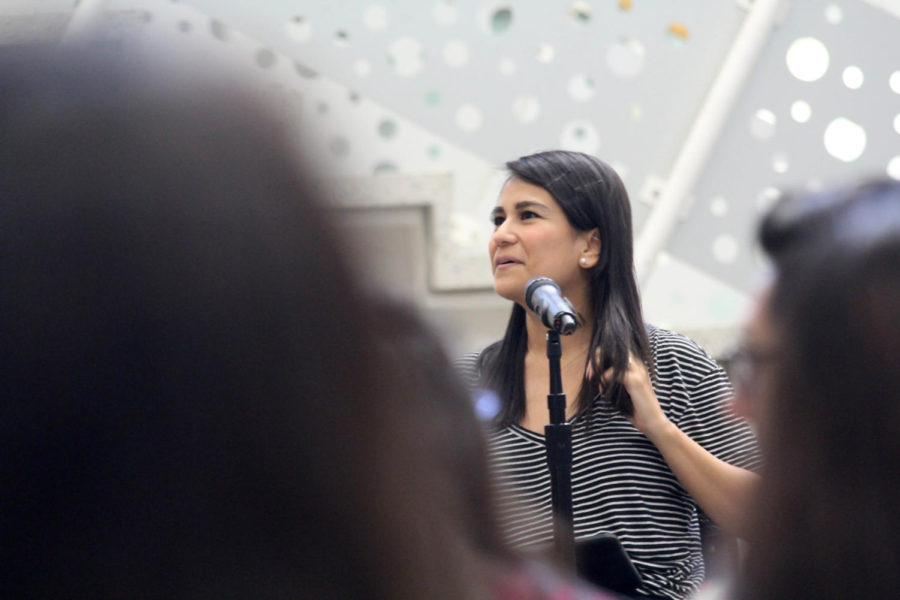‘Woke Brown Girl’ discussion sheds light on struggles faced by people of color
Mikinna Kerns/Iowa State Daily
Woke Brown Girl
April 13, 2017
Members of the Lambda Theta Alpha Latin Sorority filled the atrium of Howe Hall Thursday evening eagerly awaiting the discussion “Woke Brown Girl” to begin.
The sorority opened the discussion up to anyone who wished to attend, welcoming Prisca Dorcas Mojica Rodriguez, founder of Latina Rebels.
Lambda Theta Alpha member Valeria Silva explained that the discussion was for Rodriguez to share her experiences with the audience through her stories and writing pieces.
Silva said the sorority hopes the discussion will motivate people to stay “woke” about subjects concerning diversity in our society.
“[Rodriguez] is the founder of Latina Rebels and a writer/blogger for multiple media sources including Huffington Post,” Rosita Cansino, also a Lambda Theta Alpha member, said. “[Rodriguez’s] work revolves around the revolutionary ideas of loving and praising brown bodies and minds.”
Before the event, nearly everyone was greeted with a friendly hug and excited chatter. About 60 people were in the audience before Rodriguez began.
She opened the lecture by explaining that she uses foul language to enhance her storytelling, to accurately reminisce about her upbringing in the “hood” and the conservative Nicaraguan household she was raised in.
Rodriguez said her stories allow her “to translate bulls*** into real s***,” and that the honest, outspoken tone she has developed over the course of her life is very much in contrast with the way she had been pressured to be by her parents.
Rodriguez described her experiences in “white serving” institutions as torment.
Her experience attending Vanderbilt University’s Divinity School in Nashville, Tennessee, exposed her to racism and motivated her to form Latina Rebels because she was “angry as hell.”
Among her comical and entertaining explanations, Rodriguez was able to connect to the audience, a vast majority of whom were people of color.
Bringing up situations from her years in school and the misconceptions of her academic ability because of her color, she said, “I don’t read smart to you and it has everything to do with the color of my skin,” in reference to the frequent surprised responses she would receive from white people when she would declare she was a student at Vanderbilt University.
Many people in the audience began snapping in praise and agreement. She tied in the struggle of being a first generation college student, and the achievements and challenges that come with it, academically, financially, emotionally and mentally.







